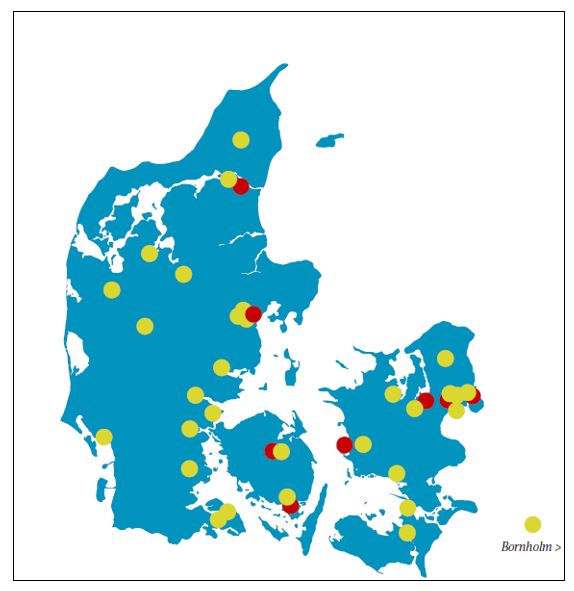The Editors have – together with the Scientific Committee – decided that new guideline papers will be presented in the Forum of NEUROPENEWS. In the September 2012 issue of the European Journal of Neurology the new EFNS guideline paper on the diagnosis and management of disorders associated with dementia on behalf of the EFNS Scientist Panel on Dementia and Cognitive Neurology is published, and we highlight this important article by offering you the abstract. We also asked the first author, Professor Sorbi, for a short statement.
Abstract:
Background and objectives: The last version of the EFNS dementia guidelines is from 2007. In 2010, the revised guidelines for Alzheimer’s disease (AD) were published. The current guidelines involve the revision of the dementia syndromes outside of AD, notably vascular cognitive impairment, frontotemporal lobar degeneration, dementia with Lewy bodies, corticobasal syndrome, progressive supranuclear palsy, Parkinson’s disease dementia, Huntington’s disease, prion diseases, normal-pressure hydrocephalus, limbic encephalitis and other toxic and metabolic disorders. The aim is to present a peer-reviewed evidence-based statement for the guidance of practice for clinical neurologists, geriatricians, psychiatrists and other specialist physicians responsible for the care of patients with dementing disorders. It represents a statement of minimum desirable standards for practice guidance.
Methods: The task force working group reviewed evidence from original research articles, meta-analyses and systematic reviews, published by June 2011. The evidence was classified (I, II, III, IV) and consensus recommendations graded (A, B, or C) according to the EFNS guidance. Where there was a lack of evidence, but clear consensus, good practice points were provided.
Results and conclusions: New recommendations and good practice points are made for clinical diagnosis, blood tests, neuropsychology, neuroimaging, electroencephalography, cerebrospinal fluid (CSF) analysis, genetic testing, disclosure of diagnosis, treatment of behavioural and psychological symptoms in dementia, legal issues, counselling and support for caregivers. All recommendations were revised as compared with the previous EFNS guidelines. The specialist neurologist together with primary care physicians play an important role in the assessment, interpretation and treatment of symptoms, disability and needs of dementia patients.
S. Sorbi, J. Hort, T. Erkinjuntti, T. Fladby, G. Gainotti, H. Gurvit, B. Nacmias, F. Pasquier, B.O. Popescu, I. Rektorova, D. Religa, R. Rusina, M. Rossor, R. Schmidt, E. Stefanova, J.D. Warren, P. Scheltens on behalf of the EFNS Scientist Panel on Dementia and Cognitive Neurology
European Journal of Neurology, Vol. 19, Issue 9, pages 1159-1179, Sept. 2012
Introduction by Sandro Sorbi:
Age-related diseases, including dementia, are of major public health concern.
Dementia affects 5.4% of people over 65 year, and its prevalence further increases with age.
In the EU, more than 160 million people are aged over 60 years, the crude estimate prevalence of dementia is 6.2% and almost 9.95 million have a form of dementia. Almost 14 million Europeans are expected to have dementia in 2030.
There are several common types of dementia and differential diagnosis is complex. The present revised guidelines consider dementias other than Alzheimer’s disease, which was covered in a recent guideline [1]. The other types of dementia reviewed include mixed dementia, dementia with Lewy bodies, vascular dementia, frontotemporal lobar degeneration corticobasal syndrome, progressive supranuclear palsy, Parkinson’s disease dementia, Huntington’s disease, prion diseases, normal-pressure hydrocephalus, limbic encephalitis.
The aim is to present a peer-reviewed evidence-based statement for the guidance of practice for clinical neurologists, geriatricians, psychiatrists and other specialist physicians responsible for the care of patients with dementing disorders. It represents a statement of minimum desirable standards for practice guidance.
New recommendations and good practice points are made for clinical diagnosis, blood tests, neuropsychology, neuroimaging, electroencephalography, cerebrospinal fluid (CSF) analysis, genetic testing, disclosure of diagnosis, treatment of behavioural and psychological symptoms in dementia, legal issues, counselling and support for caregivers.
These guidelines represent desirable standards, but may not be appropriate in all circumstances as clinical presentation of the individual patient and available resources should be taken into account. Cost-effectiveness is not discussed, as heterogeneity across Europe will result in different, country specific, conclusions. Despite the fact that there is significant evidence for the benefits of early diagnostic evaluation, treatment and social support, the rate of diagnosis and treatment in people with dementia still varies considerably in Europe.
1. Hort J, O’Brien JT, Gainotti G, et al. EFNS Scientist Panel on Dementia. EFNS guidelines for the diagnosis and management of Alzheimer’s disease. Eur J Neurol 2010; 17(10): 1236–1248.1
Sandro Sorbi is Professor of Neurology at the Department of Neurological and Psychiatric Sciences at the University of Florence, Italy and chaired the Task Force, which developed above guideline paper.







